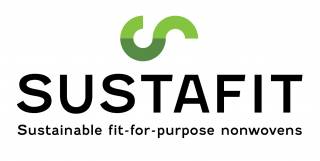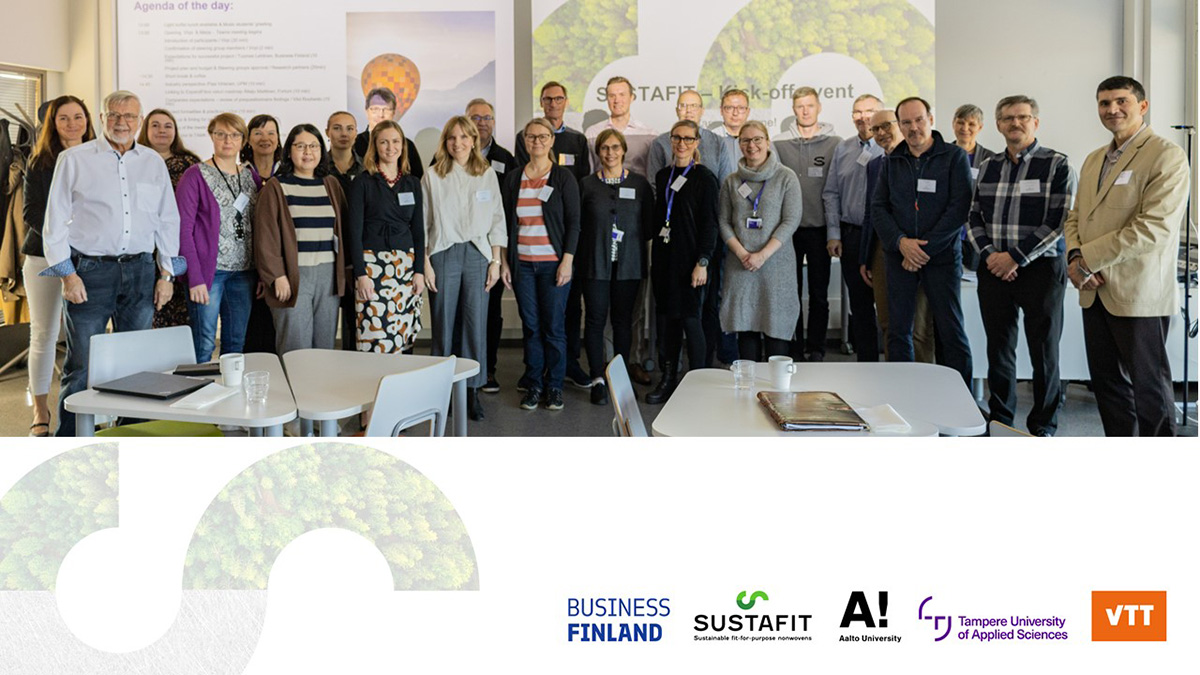Nonwovens are fibrebased materials that are widely used in our daily life products such as masks and wet wipes. Fibres are randomly distributed in nonwovens and bound together chemically, mechanically, or thermally, which makes their production process faster and simpler than those of traditional woven and knitted fabrics.
Research project solves plastic problem of disposable nonwoven fabrics
Many nonwovens are single-use products which are disposed after use and may end up in the environment. This is creating growing environmental problems like microplastic pollution affecting aquatic life and causing ecological damage.
“It is vital to build a holistic understanding of sustainability issues in the nonwoven industry. There is a need for further public research to increase usage of biobased and recycled materials”, says Senior Lecturer Virpi Rämö from the leading partner TAMK.
SUSTAFIT will support global industrial and societal goals of replacing unsustainable processes and petroleum-based materials with more environmentally friendly solutions.
The project aims to add knowledge and boost businesses
The project addresses the sustainability of nonwovens from different perspectives to improve the raw-material base, processing pathways, circularity, and business approach.
“The goal is to increase the share of sustainable nonwovens, and possibly even identify new sustainable nonwoven application areas”, Rämö outlines.
The project involves broadly stakeholders in the value chain, intending to support them to develop sustainable nonwovens, their raw materials and production technologies.
The industry partners are helping the project to go in the right and concrete direction. UPM, Fortum, SharpCell, Kemira, Fiber-X, Spinnova, Lixea, Valmet, Nordic Bioproducts Group, Rester, Sulzer, Anpap, NordShield, Lounais-Suomen Jätehuolto, Paptic, JedX Medcare and Mirka are participating in the project.
Rämö highlights that it is indispensable for the industry to gain an understanding of segment-wise sustainability strategies for nonwovens and the relation of raw materials, processing, and products to make justified decisions for their future sustainable businesses. The new information will also help consumers to make conscious and sustainable choices.
To support the industry concretely, the SUSTAFIT project will develop water-repellent and antimicrobial, bio-based nonwovens. For the moment, insufficient hydrophobicity and antimicrobial performance are two major restricting factors for nonwovens made of man-made cellulose fibres.
Research partners have a leading role
TAMK, SUSTAFIT project coordinator, leads the research of sustainable business models and value chains for nonwovens. The organisation will also study the raw material and end-of-life options of sustainable nonwovens.
VTT will study the segment-wise sustainability strategies and demonstrate the production of different kinds of nonwoven webs. VTT will also create novel concepts and structures to improve their performance.
Aalto University will bring its expertise in producing man-made cellulose fibres (MMCFs) from different raw materials, adding functional properties to fibres and nonwovens, recycling functionalized textiles into new MMCFs and exploiting the results.
The project is funded by Business Finland, research organisations and industry partners for two years starting October 2022.
More information:
Virpi Rämö
SUSTAFIT Project Manager
Senior Lecturer
Built Environment and Bioeconomy
Tampere University of Applied Sciences
virpi.ramo@tuni.fi, +358 50 570 1831
Text: Hanna Ylli
Photo: Sami Mikkonen



